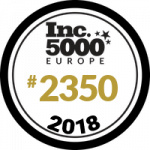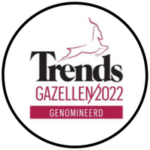Summary In the contemporary business environment, digital procurement is becoming increasingly popular and sought after by businesses around the world. The relationships …
The role of automation in procurement during economic recovery
How important is automation in procurement?
Automation plays a crucial role in today’s business landscape, especially in areas like procurement. Technologies such as process automation, analytics, workflow management, and version control have revolutionised how businesses operate.
In the realm of procurement, automation enhances efficiency and provides valuable insights for decision-making. While it doesn’t replace human capabilities, it offers unique advantages in areas like data analytics, cost optimisation, and demand forecasting.
It’s important to recognise the specific capabilities of automation to avoid overestimating its impact. As procurement continues to evolve, automation remains a powerful tool for streamlining processes and improving overall business performance.
What are today's key procurement challenges for businesses?
The present challenges in procurement necessitate automation to address complexities, enhance efficiency, and ensure resilience in the face of global business uncertainties. Key procurement challenges faced by businesses in this day and age include:
Supply chain disruptions
Global events, such as the COVID-19 pandemic, have led to widespread supply chain disruptions. Businesses face challenges in maintaining a stable and reliable supply of goods and services due to interruptions in logistics and production.
Vendor management
Managing a network of vendors across different regions and ensuring consistent quality, compliance, and ethical standards can be a complex task for businesses to tackle. Procurement automation can allow businesses to manage stakeholders.
Cost management
Fluctuating commodity prices, currency exchange rates, and economic uncertainties make it difficult for businesses to control procurement costs effectively. Procurement automation allows businesses to manage and optimise procurement costs.
Risk mitigation
Geopolitical, regulatory, and environmental concerns pose risks to supply chains, requiring businesses to identify and mitigate disruptions. Automation tends to balance communication with stakeholders and data analysis for making decisions.
How does procurement automation tackle economic and market challenges?
In the face of economic recovery and stabilisation, businesses are turning towards innovative strategies to thrive and adapt.
One crucial area gaining prominence is the evolution of digital transformation. As economies recover and stabilise, businesses are turning towards cutting-edge technologies to streamline operations, enhance efficiency, and unlock new opportunities.
Enhanced efficiency
Automation tends to accelerate routine tasks such as purchase requisitions, approvals, and order processing, improving overall efficiency and reducing lead times.
Data accuracy and insights
Automated systems ensure data accuracy, providing reliable analytics and insights for informed decision-making in real-time, which increases competitive potential.
Cost savings
Automation reduces operational costs by minimising manual interventions, negotiating better terms with suppliers, and optimising procurement processes.
Improved compliance
Automated procurement systems enforce compliance with organisational policies and regulatory requirements, reducing the risk of legal and ethical issues.
Supplier relationship management
Automation provides visibility into supplier performance, delivery times, and quality metrics, strengthening collaboration and fostering long-term partnerships.
Agility in adapting to changes
Automated procurement offers agility in responding to dynamic market conditions, allowing businesses to quickly adjust and adapt to economic or market changes.
What are the challenges of implementing automation in procurement?
While procurement automation promises efficiency and optimisation, it’s crucial to be aware of potential challenges and risks that may arise during implementation.
Cost constraints
The initial investment required for implementing automation software can be substantial. Small to medium-sized enterprises, in particular, may find it challenging to justify the costs, impacting the feasibility of adoption.
Data quality concerns
The effectiveness of advanced analytics within automation is highly dependent on the quality of data input. If data sources are inconsistent or unreliable, the outcomes may not meet expectations—leading to suboptimal decision-making.
Skill set requirements
Automation tools demand a certain level of technical expertise for effective operation. Organisations may need to invest in training or hire personnel with the requisite skills, potentially posing challenges in talent acquisition.
Integration complexity
Integrating procurement automation seamlessly into existing systems can be complex, especially in industries with diverse legacy technologies. Ensuring compatibility and smooth integration may require additional time and resources.
Regulatory compliance
Using procurement automation may be subject to regulatory frameworks in different regions. Compliance with varying rules and regulations can impact the usability of automation tools, particularly in industries with strict governance.
Human involvement
Reliance on automation can lead to diminished human involvement. Solely relying on it can result in oversight or misinterpretation of complex situations—necessitating a resourceful balance between automation and human involvement.
How can businesses overcome these challenges?
Businesses can navigate the complexities of procurement automation and unlock its full potential by acknowledging and proactively addressing these challenges.
Cost-benefit analysis
Conduct a thorough cost-benefit analysis to assess the financial viability of automation and consider long-term gains, operational efficiencies, and potential cost savings to justify the initial investment.
Training and skill development
Invest in training programs for existing staff, or hire professionals with the necessary skills to operate automation tools effectively. This ensures a smooth transition and utilisation of the technology.
Gradual integration
Implement procurement automation gradually in processes, starting with less complex processes. This allows for a phased approach to integration, minimising disruptions and allowing time for adjustments.
Stay informed on regulations
Stay aligned towards regional regulations governing automation in procurement. This will proactively ensure that your processes align with the applicable legal frameworks to avoid compliance issues.
Balanced human-automation collaboration
Foster a culture that promotes collaboration between human expertise and automated processes, with a clear definition of the roles of stakeholders towards business function and objective achievement.
Procurement consultation
Procurement consulting helps firms through the intricacies of supply chain management and allows businesses to strive for efficiency, cost-effectiveness, and strategic agility in the long run.
Experience the benefits of procurement automation with Kronos Group
Embark on a transformative journey towards procurement automation and excellence with the visionary expertise of Kronos Group. Experience a seamless transition into a new era of procurement optimisation and innovation as we redefine the landscape of procurement consulting services.
At Kronos Group, we specialise in propelling businesses into the future through digital transformation and strategic technology adoption. Our commitment lies in analysing, recommending, and implementing cutting-edge digital strategies that unleash the full potential of your procurement operations.
Join us on a journey of transformative change within the dynamic landscape of contemporary business—connect with Kronos Group today.

Fighting the effects of inflation with sourcing and procurement consultants
Stay up-to-date on the latest insights on procurement, finance, and project management.
Summary Strategic procurement has become a necessity in today’s business world and organisations try to remain competitive. Having the right procurement strategies …
Summary The world of consulting has been undergoing a massive transformation and management consulting jobs are experiencing the impacts of these changes. …
FAQ
Automation in procurement aims to bring efficiency, cost savings, accuracy, speed, and strategic insight to allow businesses to achieve objectives, survive and gain a competitive edge.
RPA elevates procurement by automating tasks like data entry, invoice processing, order fulfilment, and contract management, this streamlining of processes enhances efficiency and strategic decision-making.
A smart procurement system leverages technology like blockchain, cloud systems, advanced analytics and automation for intelligent sourcing, cost efficiency, and strategic decision-making in procurement processes, fostering agility and innovation.














